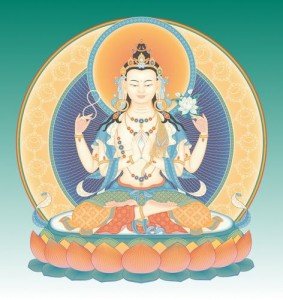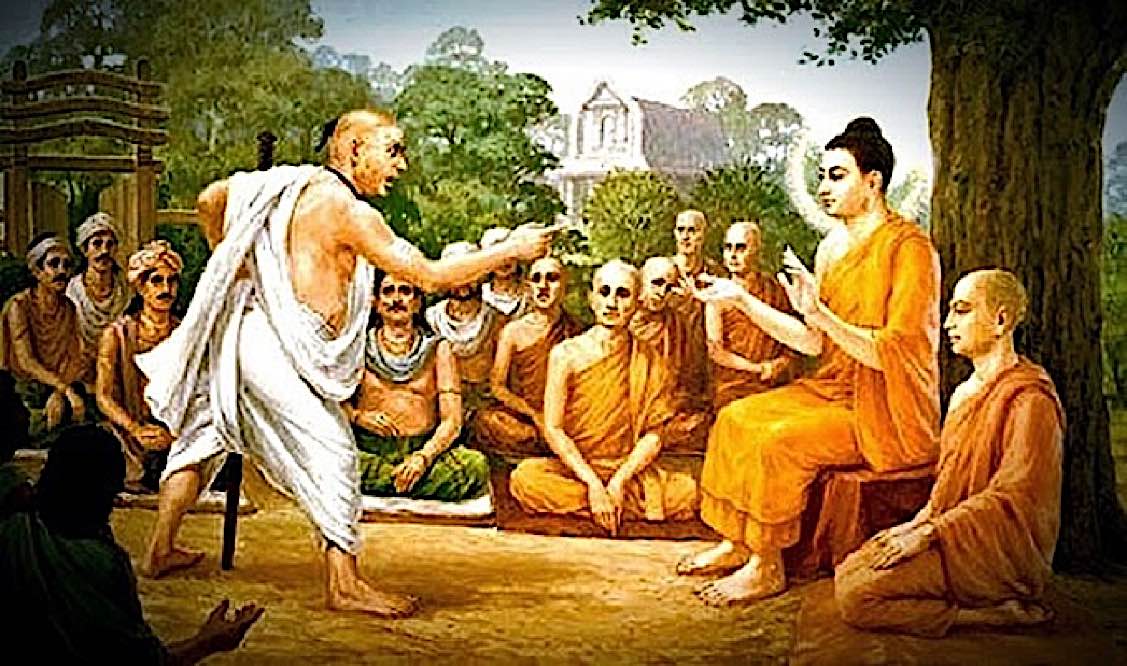Random Acts of Kindness Creates Good Karma. Mindful Acts of Kindness Refines Practice.
“As a mother even with her own life protects her only child, so should one cultivate immeasurable loving-kindness towards all living beings.” — Buddha, The Metta Sutta

Mindfulness helps us overcome striving, judging and clinging—and can be thought of as a remedy for attachment which keeps us suffering in samsara. I usually think of ten mindfulness principals in my practice, of which I believe kindness to be the most important:
- kindness
- patience
- trust
- non-striving
- a beginners mind
- no judging
- letting go
- acceptance.
The tenth, of course, is “living in the present” which anchors all the rest in real practice.

“The difference between misery and happiness depends on what we do with our attention.”
― Sharon Salzberg, Lovingkindness: The Revolutionary Art of Happiness
Transforming mindfulness with kindness
Bringing kindness can transform the quality of your mindfulness practice. By focusing on kindness in practice, the quality of mindfulness tends to shift from just “being as it is” to “being as it is in a positive way.” Of course, karma is inextricably linked to kindness, since even your thoughts have karmic potentiality according to many teachers. Approach mindfulness with kindness transforms the experience.
The Eleven Advantages of Practicing Metta:
One sleeps Happy!
One wakes Happy!
One dreams no evil dreams!
One is liked and loved by all human beings!
One is liked and loved by all non-human beings too!
One is Guarded & Protected by the divine Devas!
One cannot be Harmed by Fire, Poison, or Weapons!
One swiftly Attains the Concentration of Absorption!
One’s appearance becomes Serene, Calm, & Composed!
One dies without Confusion, Bewilderment, or Panic!
One reappears after death on the Brahma level if one has penetrated to no higher level in this very life!
Anguttara Nikaya XI.16
In practice, how does it work?
In the same way you focus on the present second or minute in mindfulness, with kindness training you just observe what’s happening, but always notice the “positives” and the kind moments. In the same way as a journalist can “spin” an article to be either positive or negative with the same facts, you can spin your mindfulness experience positively or negatively. This is concentrated kindness, a passive mindfulness techniques.
Also, acts of kindness are active mindful techniques—in the same way archery or kung fu are active mindfulness techniques in Zen/Chan Buddhism. Other examples of active kind mindfulness would be to stop and help when a person is in need, an injured person, simply opening a door for someone with too many bags, or any random act of kindness. Somewhat active, when you can’t stop and help, might be to say a sutra or mantra on behalf of a person or animal in need. I regularly say mantras to road kill along the highways.
![]()
“Kindness is my Religion.” Dalai Lama
Active acts of kindness are mindful
As a general concept, current, in the moment acts of spontaneous kindness are a form of mindful kindness. This is the more active form of the meditation. Going out of your way, while late for a meeting, to give money to a homeless person is an act of mindfulness. You are mindfully half-running to your meeting from your parked car, you see a homeless person across the street, on the wrong side, and — even though you are late— you cross over and give him money. Then, you arrive at your meeting with a smile in a positive state of mindfulness.
Other examples of active kindness might be
- Thinking to bring bunny food or bird food with you on your morning jog
- Focusing on waving at other drivers who cut you off on the highway
- Thanking someone genuinely when you lose
- There are hundreds of more potential daily examples.
“Letting go —— abandoning, relinquishing –— is actually the same mind state as generosity. So the practice of giving deeply influences the feeling tone of our meditation practice, and vice versa.”
― Sharon Salzberg, Lovingkindness: The Revolutionary Art of Happiness
Passive concentrated kindness is also very powerful
Although mindfulness should be about being the the present moment, and one method advocates the “observer” mind where you simply observe, kindness mindfulness can take observation to the next level by allowing you to see the up side to any situation.

I’m in pain, how can that be transformed?
A classic example is my painful knees. A result of years of sport, my knees are now painful even in daily walk — and also for simple sitting meditation. Mindfulness helps me push through the pain. I focus on the pain — with kind attention, not as an antagonist — and the pain become quite manageable. I find myself understanding the pain is warning me not to push my body. I tell myself pain is telling me I’m alive to experience this. There are all sorts of positive spins you can put on any mindfulness observation.

I’m stressed by work, how can that be transformed?
I can’t keep up with deadlines these days. But still, I slow down and practice kind mindfulness as I face these deadlines. I don’t retreat into meditation, but I turn my work into meditation, concentrating on the immediate task with enthusiasm and forgetting “at this rate I’ll miss my deadline.” What do you know, I feel better, and I make my deadlines. I want to shout at someone, how can that be transformed?

The Metta Sutra
Simply reading or contemplating the Metta Sutra can be an act of mindful kindness. Here is a translation:
This is what should be done
By one who is skilled in goodness,
And who knows the path of peace:
Let them be able and upright,
Straightforward and gentle in speech,
Humble and not conceited,
Contented and easily satisfied,
Unburdened with duties and frugal in their ways.
Peaceful and calm and wise and skillful,
Not proud or demanding in nature.
Let them not do the slightest thing
That the wise would later reprove.
Wishing: In gladness and in safety,
May all beings be at ease.
Whatever living beings there may be;
Whether they are weak or strong, omitting none,
The great or the mighty, medium, short or small,
The seen and the unseen,
Those living near and far away,
Those born and to-be-born — May all beings be at ease!
Let none deceive another, Or despise any being in any state.
Let none through anger or ill-will Wish harm upon another.
Even as a mother protects with her life Her child, her only child,
So with a boundless heart Should one cherish all living beings;
Radiating kindness over the entire world:
Spreading upwards to the skies,
And downwards to the depths;
Outwards and unbounded,
Freed from hatred and ill-will.
Whether standing or walking, seated or lying down
Free from drowsiness,
One should sustain this recollection.
This is said to be the sublime abiding.
By not holding to fixed views,
The pure-hearted one, having clarity of vision,
Being freed from all sense desires,
Is not born again into this world.
Latest Features
Please support the "Spread the Dharma" mission as one of our heroic Dharma Supporting Members, or with a one-time donation.
Please Help Support the “Spread the Dharma” Mission!

Be a part of the noble mission as a supporting member or a patron, or a volunteer contributor of content.
The power of Dharma to help sentient beings, in part, lies in ensuring access to Buddha’s precious Dharma — the mission of Buddha Weekly. We can’t do it without you!
A non-profit association since 2007, Buddha Weekly published many feature articles, videos, and, podcasts. Please consider supporting the mission to preserve and “Spread the Dharma." Your support as either a patron or a supporting member helps defray the high costs of producing quality Dharma content. Thank you! Learn more here, or become one of our super karma heroes on Patreon.
Lee Kane
Author | Buddha Weekly
Lee Kane is the editor of Buddha Weekly, since 2007. His main focuses as a writer are mindfulness techniques, meditation, Dharma and Sutra commentaries, Buddhist practices, international perspectives and traditions, Vajrayana, Mahayana, Zen. He also covers various events.
Lee also contributes as a writer to various other online magazines and blogs.











